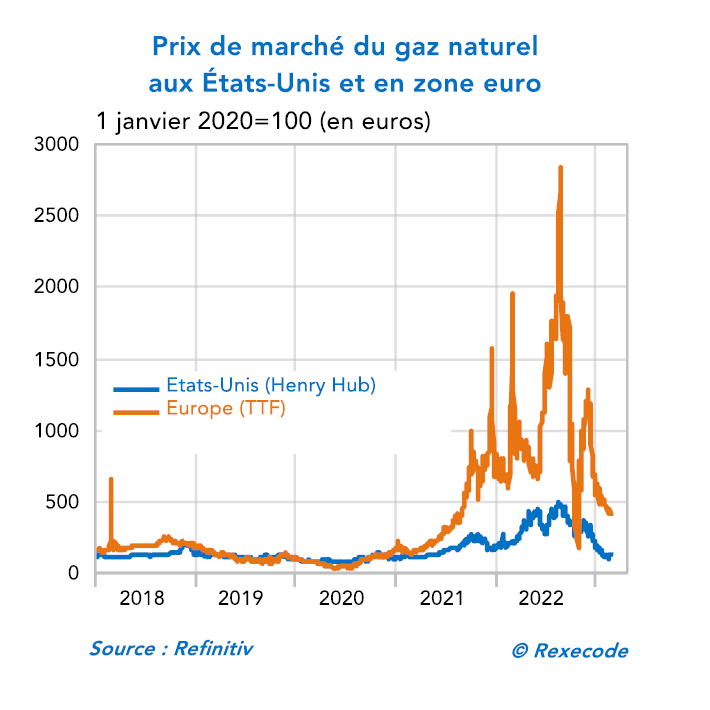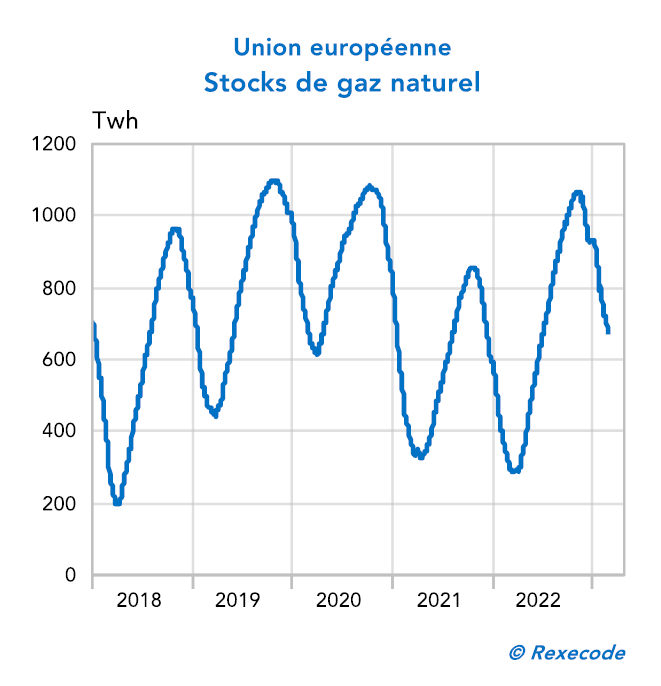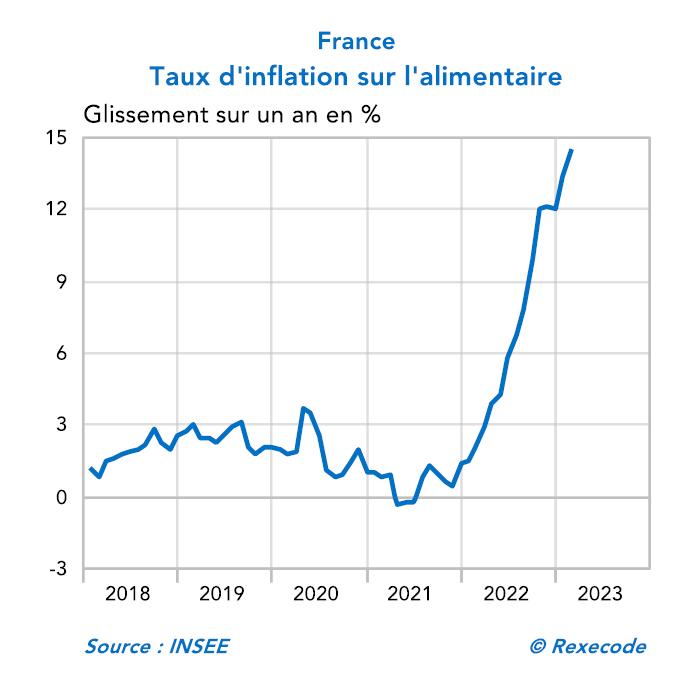
L’INFLATION CRÉE DE LA VOLATILITÉ ET DONC DE L’INCERTITUDE
Les médias parlent de « mars rouge » à propos de l’inflation sur les prix alimentaires alors que les négociations entre les fournisseurs et la grande distribution se sont terminées le 1er mars.
Réalité ou craintes exagérées ? Nous verrons bien, mais l’inflation apporte dans ses bagages un autre problème : l’incertitude.
Lorsque nous étions entre 0 et 2% de hausse des prix annuels, nous avions aussi l’assurance que ce serait encore le cas dans les années qui viennent, et cette certitude est très favorable à l’activité économique. Lorsque l’inflation démarre, elle n’est jamais stable, elle devient volatile. Un pays n’a pas, par exemple, 40% d’inflation, ou alors juste pendant quelques mois, ensuite ce chiffre monte ou, plus rarement, descend, sans que les raisons apparaissent clairement. On le voit actuellement en Turquie, en Argentine, au Liban, etc. Pour les entrepreneurs, les investisseurs, les consommateurs, il devient impossible de faire des calculs et des prévisions à moyen et long terme.

Des hausses de prix de 40% ou plus, c’est ce que nous connaissons dans le domaine de l’énergie : le prix du gaz vendu en Europe a explosé cet été avant de s’effondrer à l’automne, même s’il reste plus cher qu’aux États-Unis. La crise énergétique est-elle terminée ? Non, ce n’est pas aussi simple : le prix du gaz a grimpé parce que l’Europe a décidé de remplir ses stocks après avoir arrêté ses achats de gaz russe suite aux sanctions. Il fallait éviter la panne en plein hiver, et donc acheter en urgence. Une fois que les réservoirs sont remplis, le flux d’achat s’arrête, et les prix chutent, d’autant que l’hiver s’avère particulièrement doux. Mais cela ne va pas durer car les stocks européens ont une contenance d’environ deux mois de consommation, en conséquence, il faudra reprendre les achats et le prix risque à nouveau de bondir…

Des marques de conserverie et de plats préparés ont mis à l’arrêt début janvier leurs principaux sites de production après avoir vu leurs factures d’énergie multipliées par dix. La baisse des prix de l’énergie va-t-elle les faire changer d’avis ? Leurs dirigeants savent bien que les achats de gaz des pays européens vont repartir et peser sur les prix. De combien ?

Une forte inflation est également très différenciée : certains secteurs, comme le numérique ou le luxe, y échappent presque, tandis que d’autres, dépendant de l’énergie comme l’alimentaire, voient leurs prix exploser. Les distorsions sont énormes, la « redistribution des cartes » au sein de l’économie est brutale, les capacités d’adaptation sont mises sous tension. La politique économique devient aussi plus incertaine : les gouvernements annoncent des aides mais les dispositifs se révèlent souvent complexes.

Cette incertitude rétrécit l’horizon temporel, prendre des décisions devient plus complexe, les investissements, conditions de la croissance, sont sensibles. C’est aussi pour cette raison qu’il faut vaincre l’inflation.
Sources : Rexecode, Banque Delubac & Cie, Refinitiv, Turkstat, INDEC, Central Administration for Statistics, INSEE